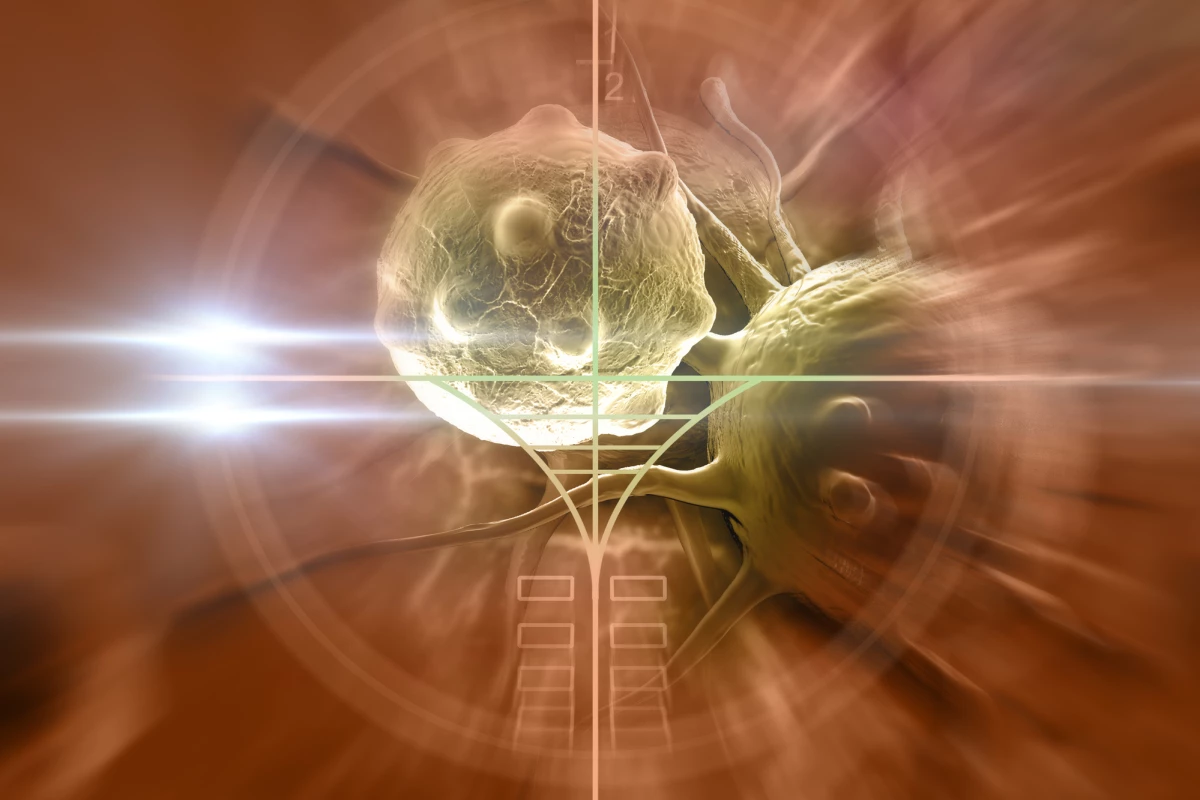Scientists have known for some time that lactic acid can fuel the growth of tumors, but the biological mechanisms behind this relationship have remained unclear. A new study has drilled into the matter and turned up some useful answers around how lactic acid inhibits the body's natural defenses against cancer, which the authors believe could leave to new and improved forms of immunotherapy to treat it.
The study was led by scientists at the Vrije Universiteit Brussel (VUB), who set out to investigate how lactic acid can disrupt the body's defense against tumors. Research has long shown that large amounts of lactic acid are produced by cancer cells, and can be a key source of fuel to help the tumor grow. For this new study, the scientists looked into how this is achieved through the recruitment of normally healthy immune cells called macrophages.
These are key players in the way our body detects and destroys harmful organisms like bacteria, and can also kick other immune cells into action, such as powerful T cells. Macrophages are known to exist within tumors in large quantities, where they can influence the progression of the cancer in different ways. So the scientists studied the metabolic characteristics of them through ex-vivo samples.
This revealed that the macrophages use lactic acid in this environment for energy, but ultimately this causes them to take on a sinister role, gradually transforming into cells that drive the growth of the tumor rather than attack it. In addition, the lactic acid causes them to neutralize the activity of immune cells that would normally attack the cancer, severely compromising the immune response.
"Macrophages are present in large numbers in tumors but are, as it were, misled by the tumor in order to help it grow," said study author Prof Jo Van Ginderachter. "With the lactic acid of the cancer cells, the macrophages keep themselves alive but eventually develop into tumor-promoting cells. Under the influence of the lactic acid, the macrophages paralyze other ‘killer’ immune cells that can recognize and destroy the cancer cells, thereby helping to weaken the tumor immunity.”
The scientists believe this process may be a factor in the effectiveness of immunotherapy, an arm of cancer treatment that aims to enhance the body's immune response to the disease through various means. Not all patients respond to it, however, and the researchers suspect that, influenced by the lactic acid in the tumor environment, macrophages are shutting down "killer" immune cells that the therapy is trying to stimulate.
"So we need to be able to suppress immune-disrupting cells, such as the macrophages, and still increase the success of immunotherapy,” said Van Ginderachter.
The scientists therefore see impeding the formation of lactic acid in tumors as a worthwhile aim, and have a few ideas around how it might be done. Preventing its production altogether is one possible solution, though because many cell types in the tumor produce lactic acid too there are questions around whether it could be decreased to the levels required. Alternatively, it could be neutralized with the help of a buffer solution, or chemicals could be used so that the macrophages simply don't feed on the lactic acid.
"Research is also being carried out in our laboratory into these problems, so that future medicines can be delivered directly to the tumor or the macrophages, thus avoiding side effects," said Van Ginderachter.
The research was published in the journal Cell Reports.
Source: Vrije Universiteit Brussel




